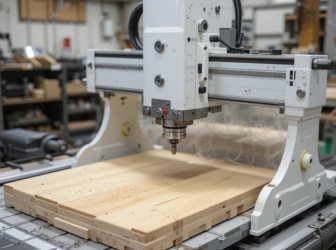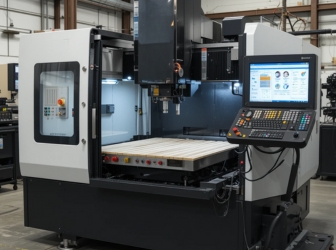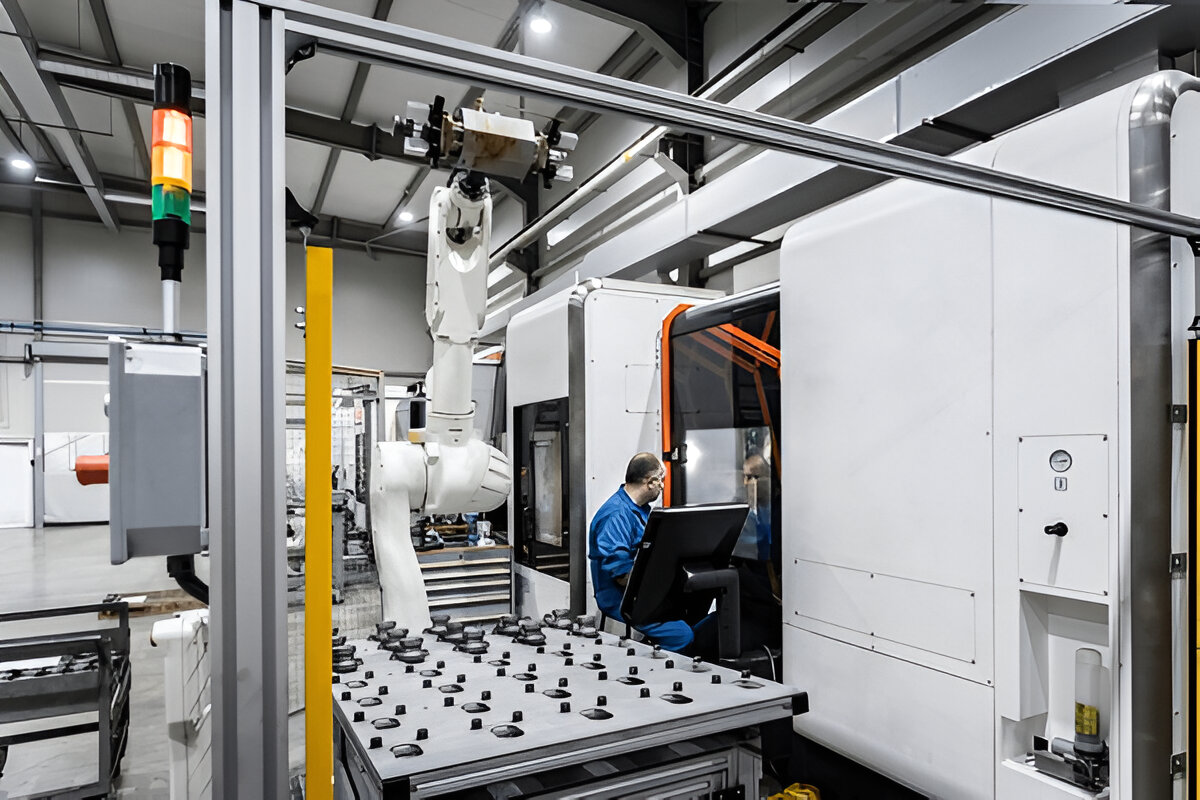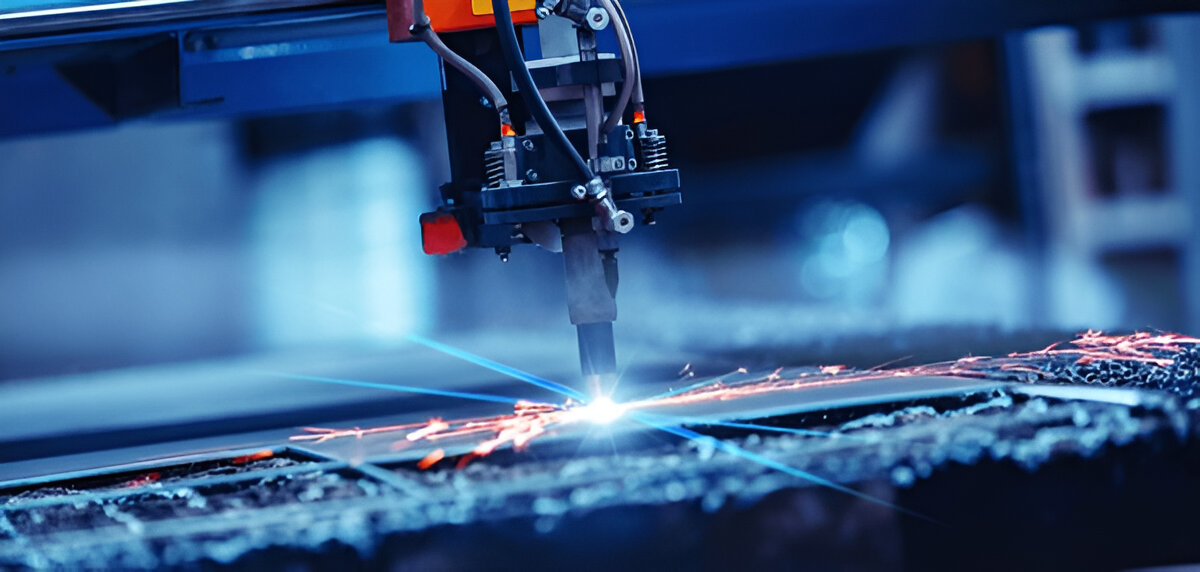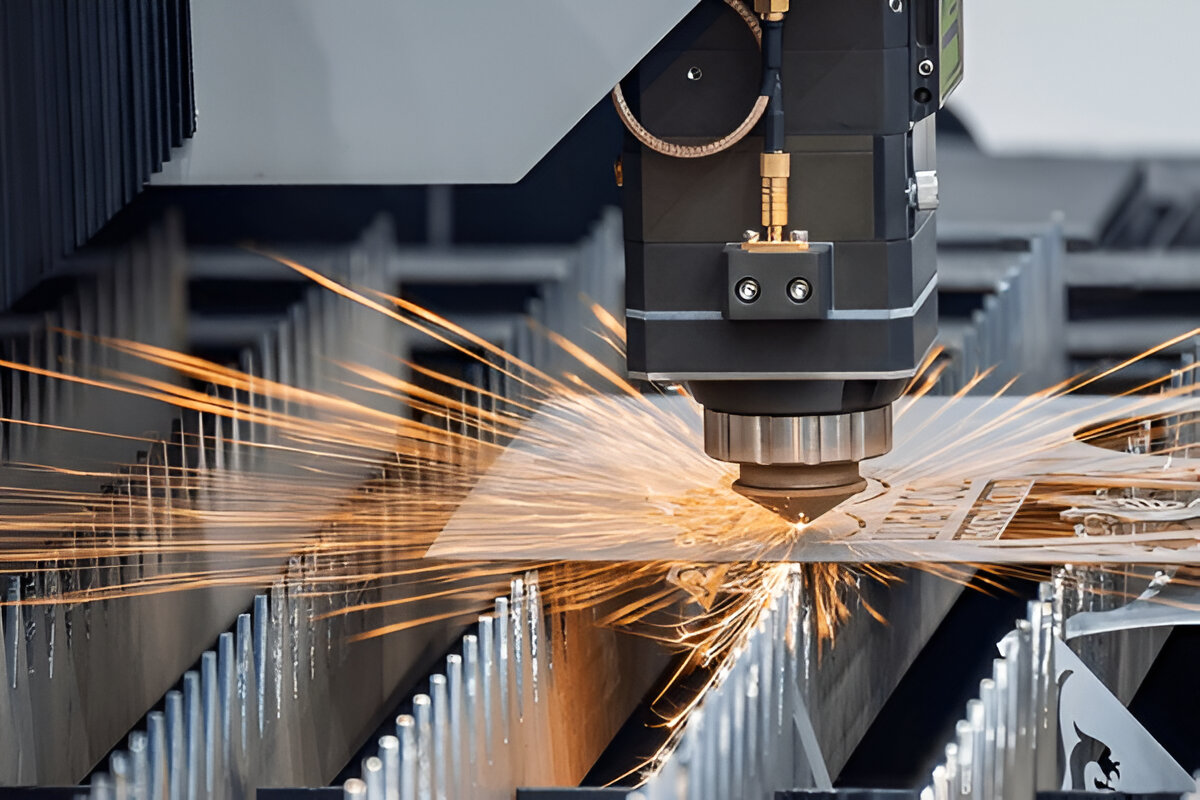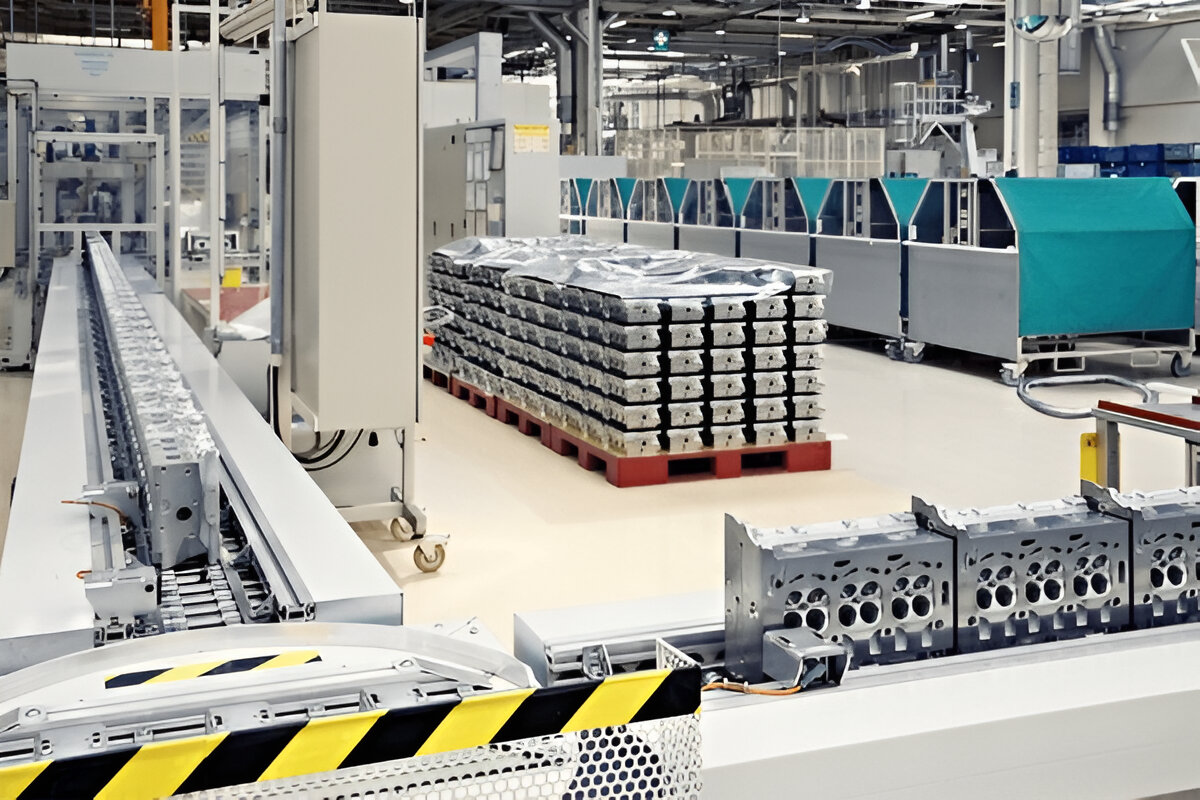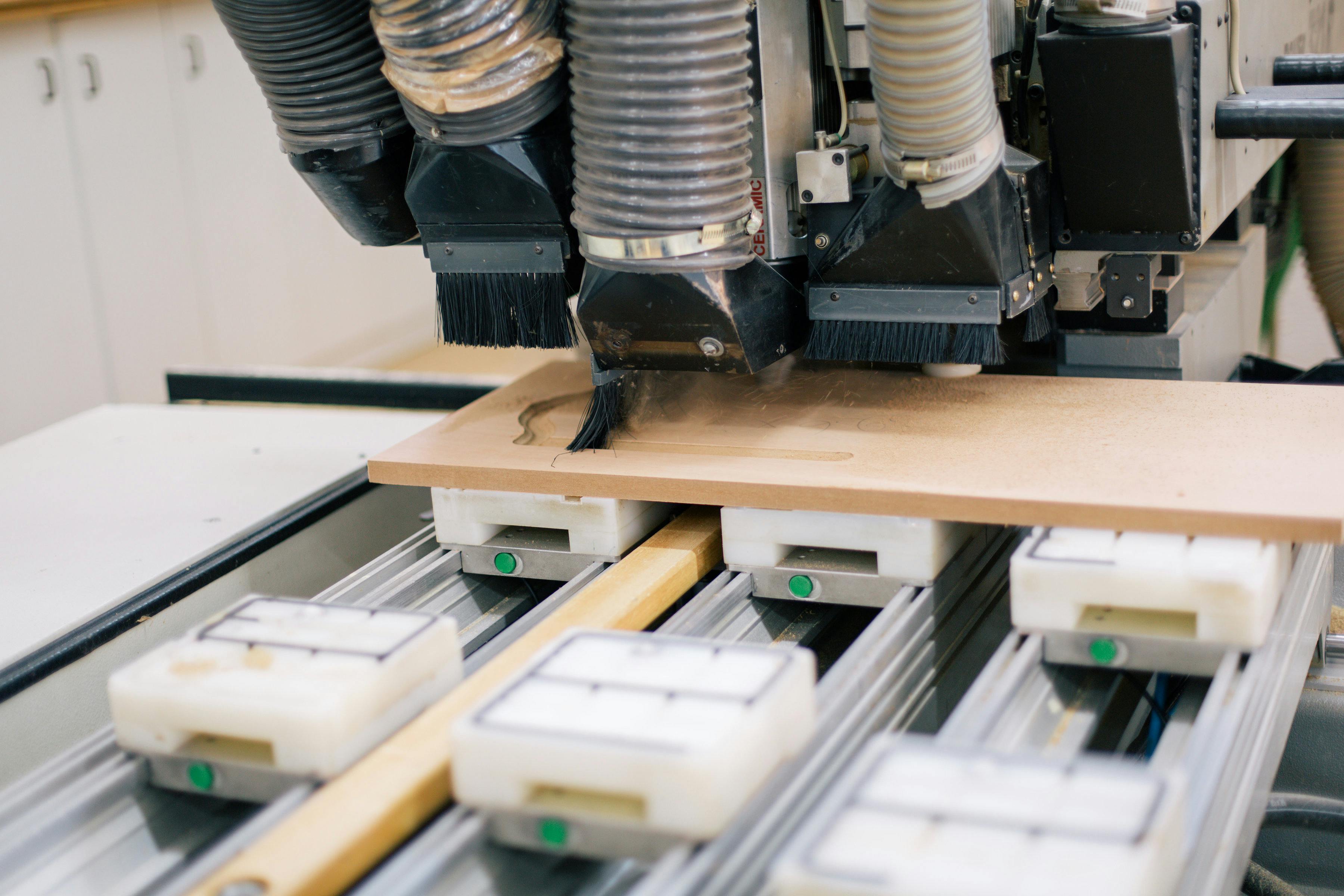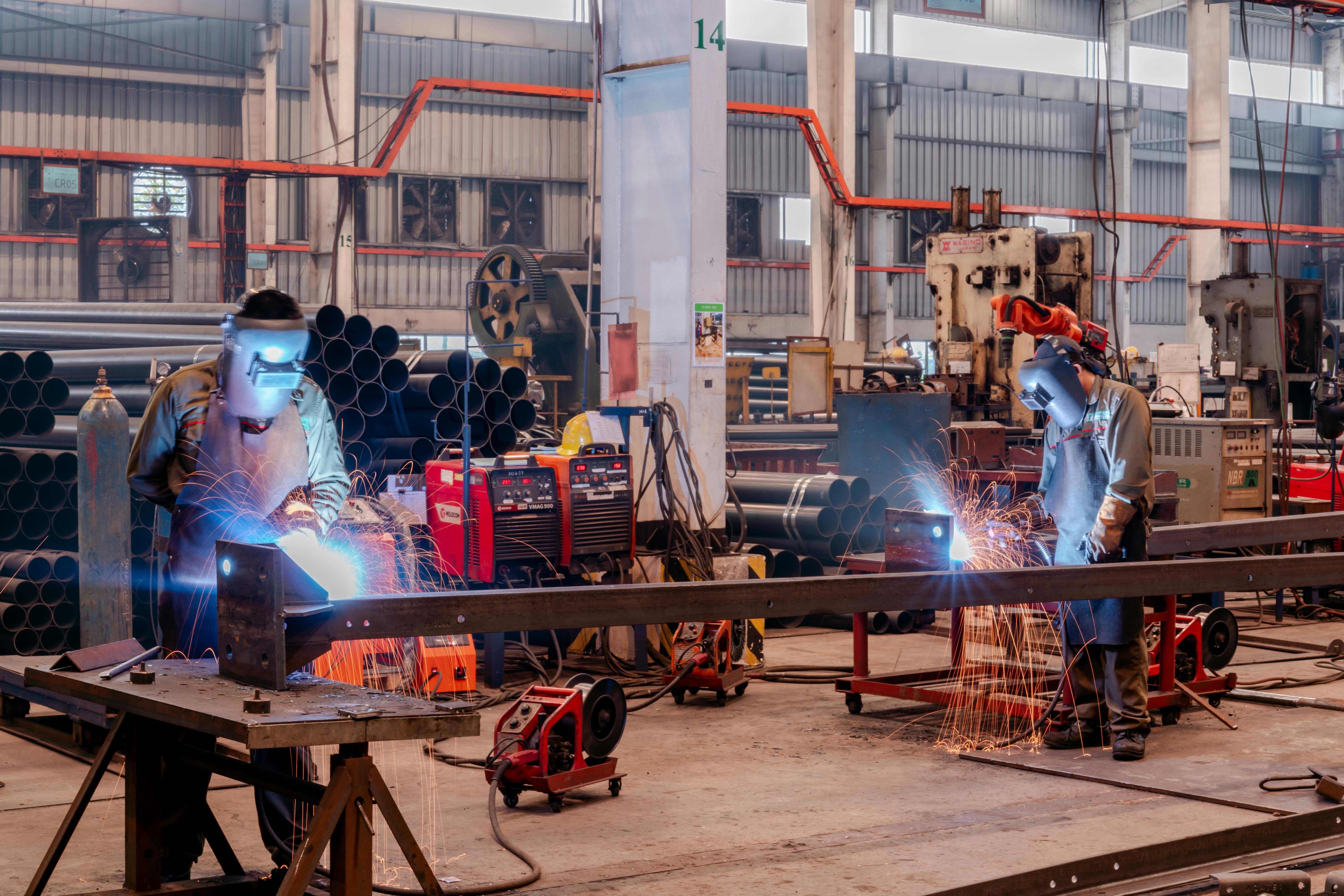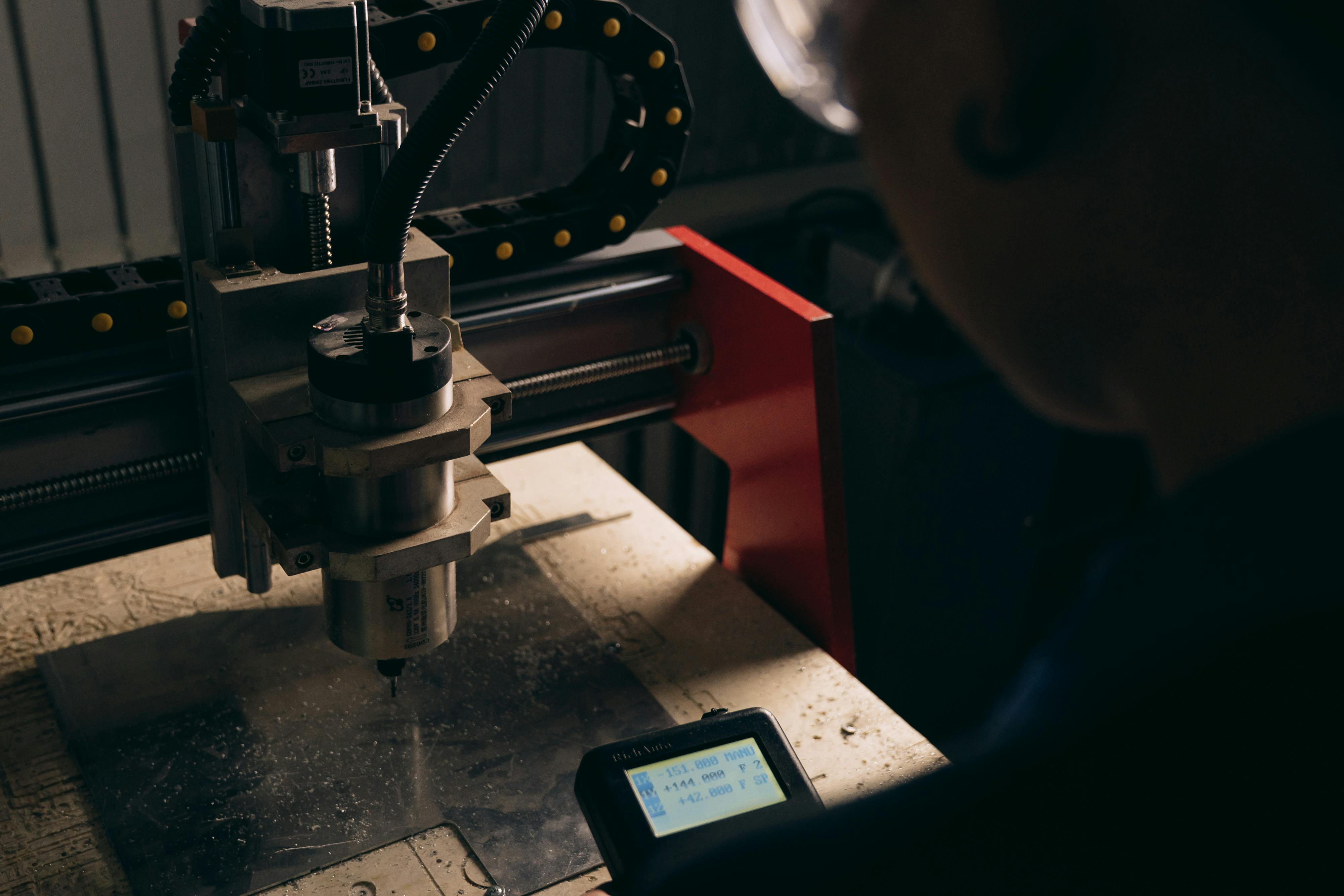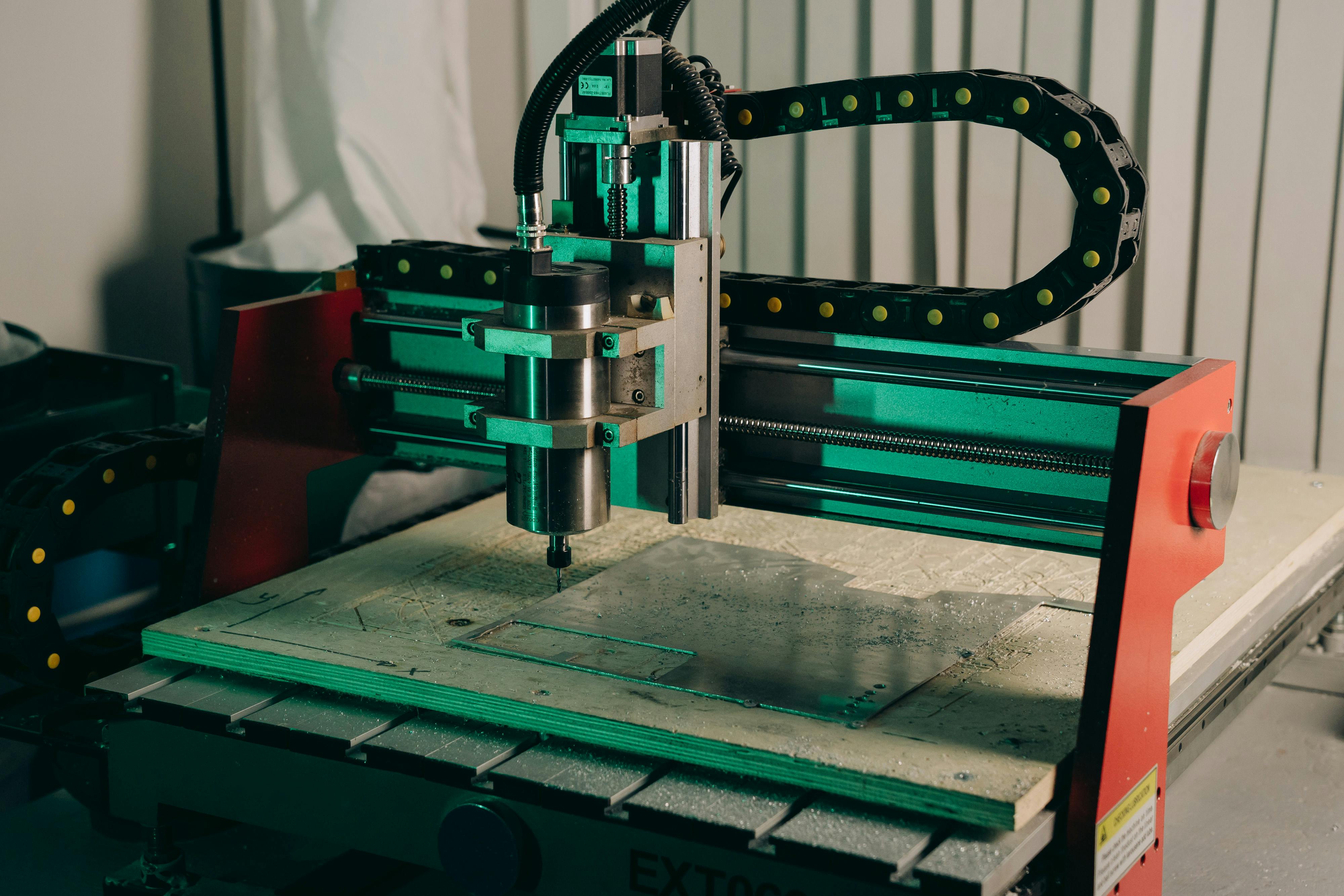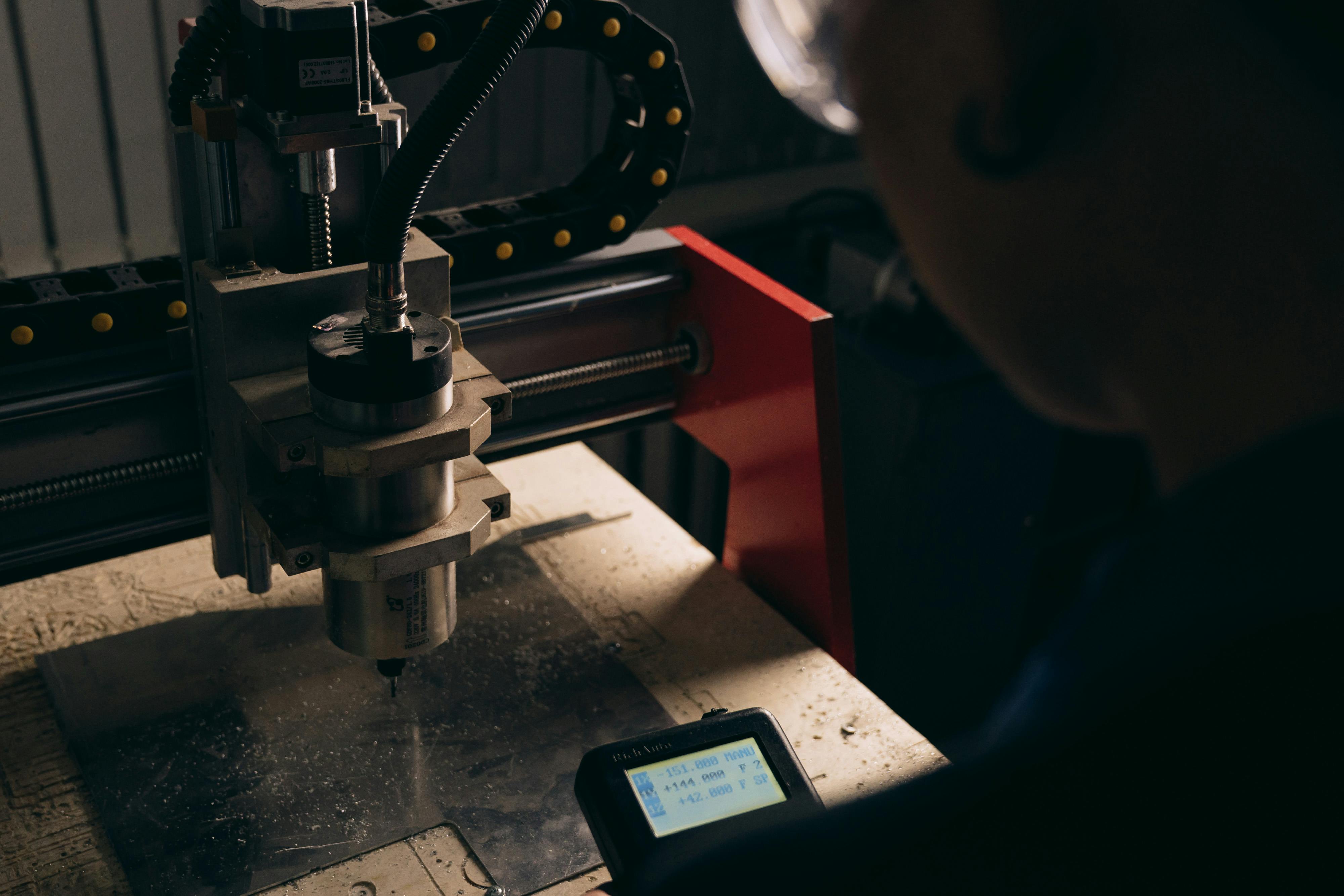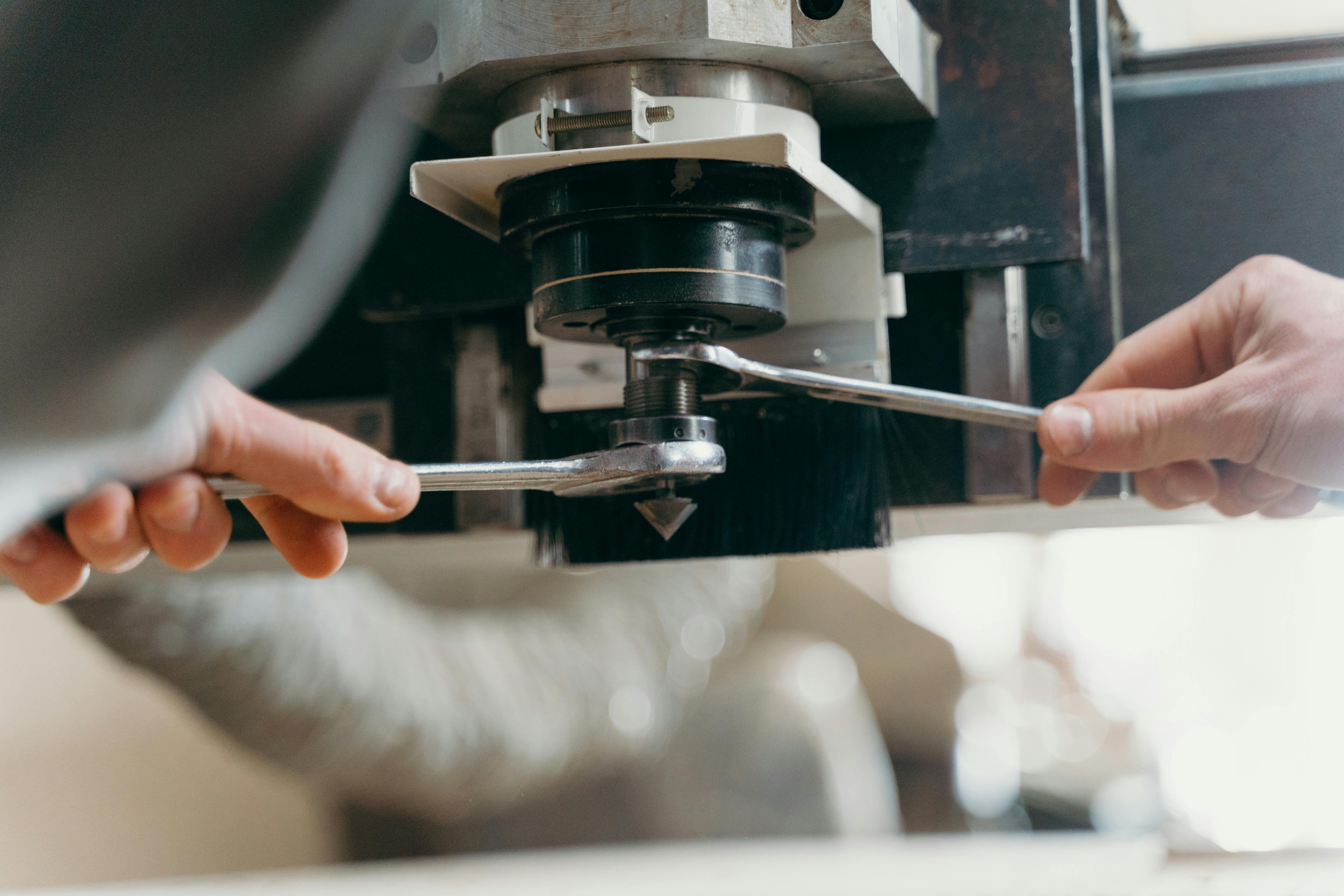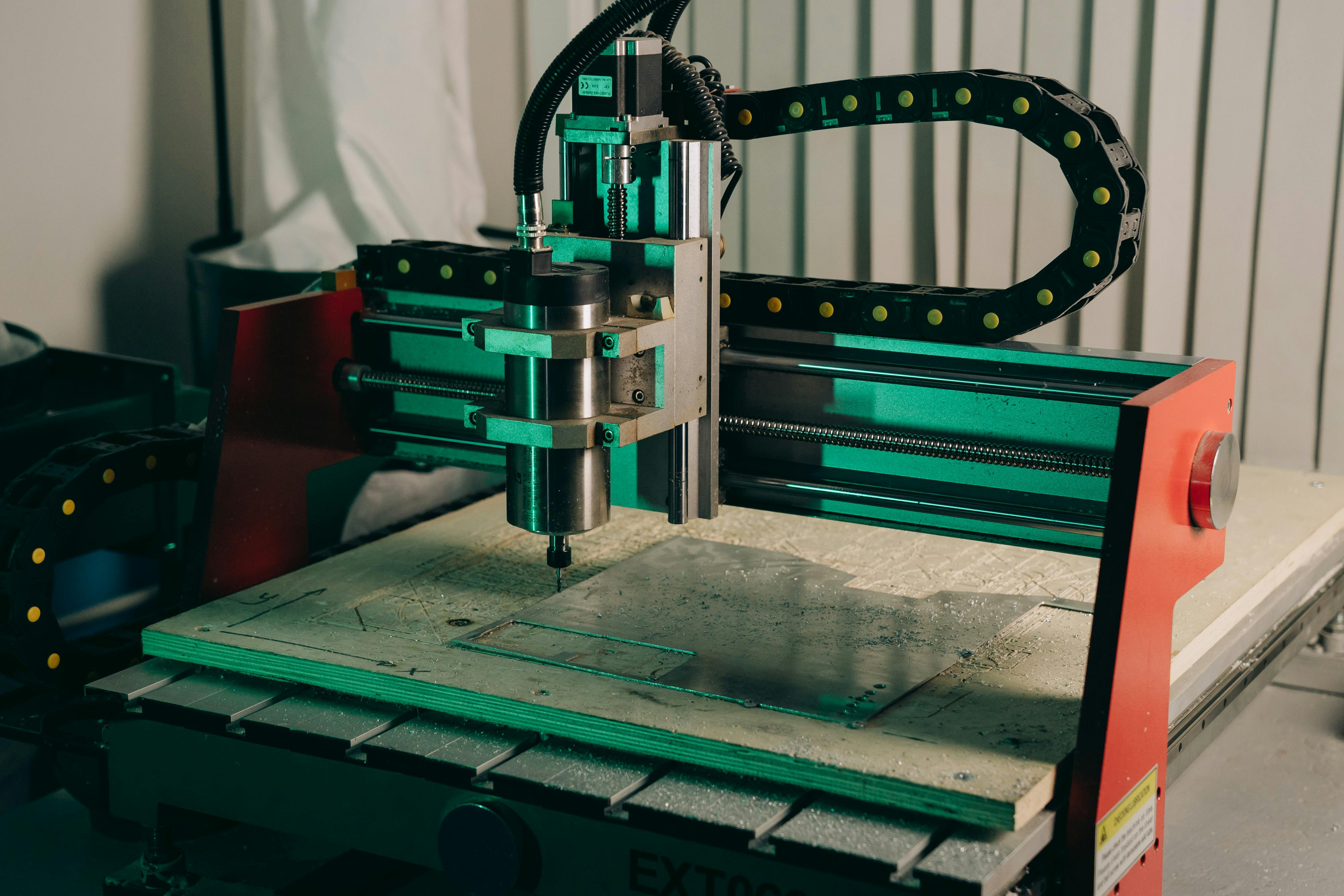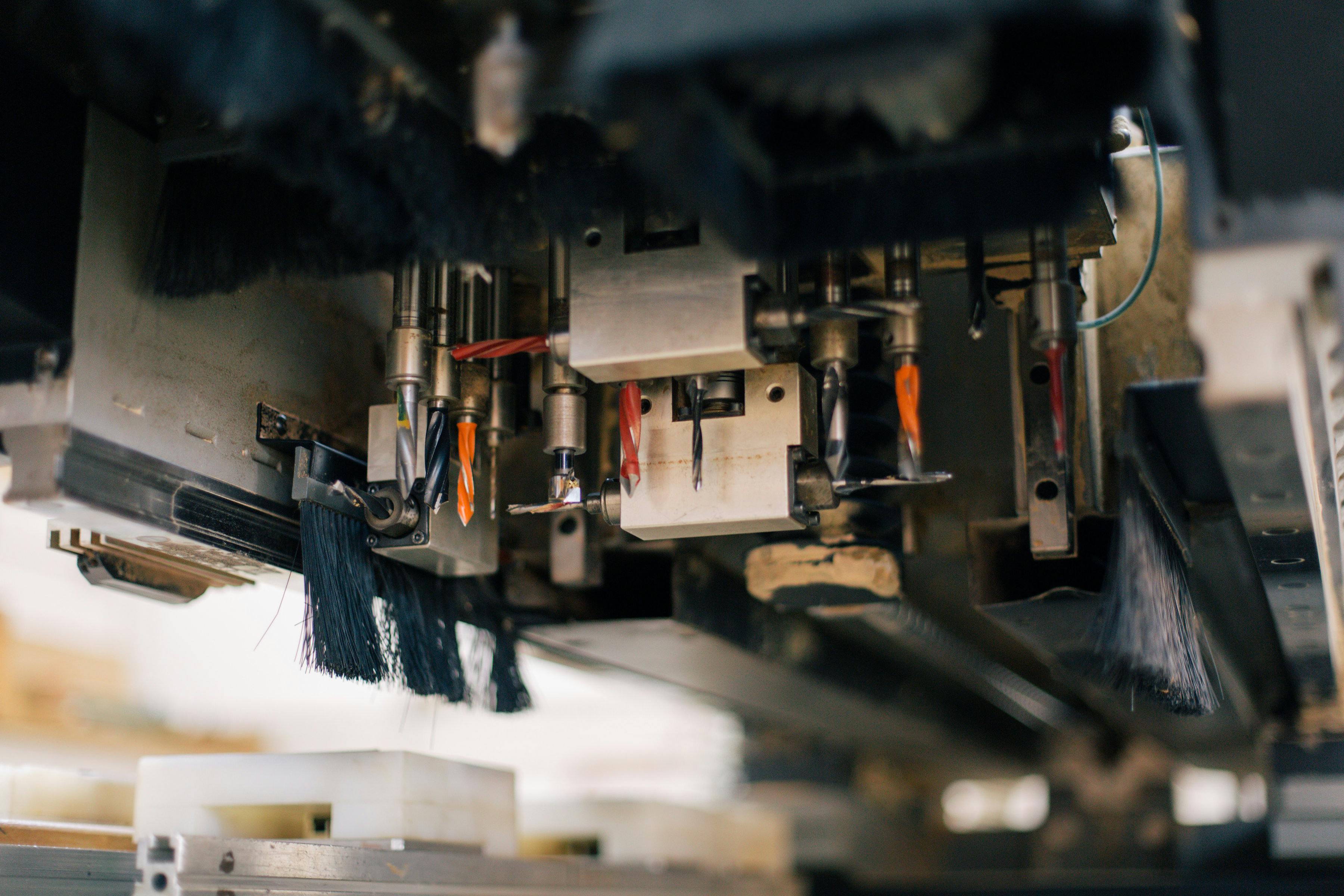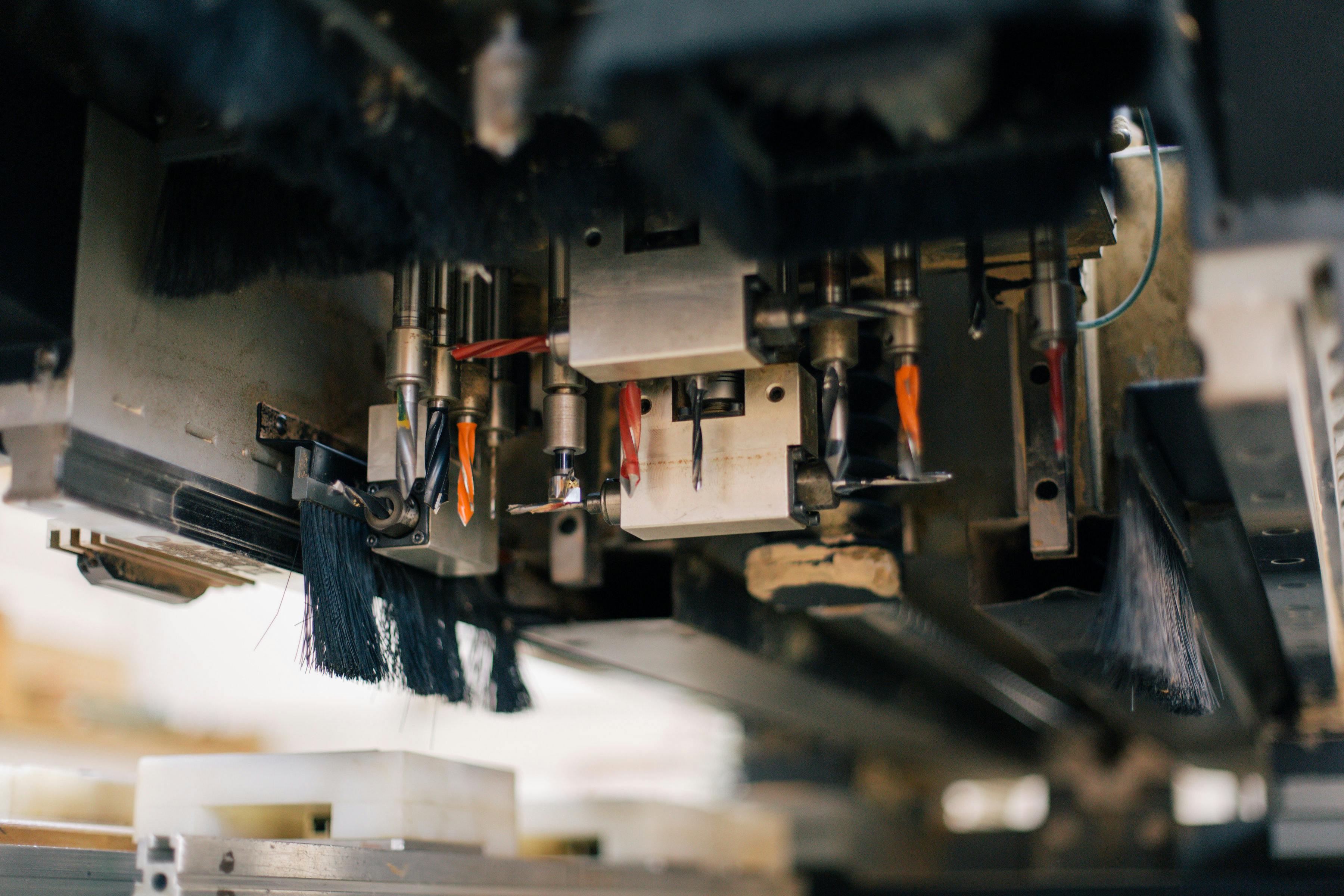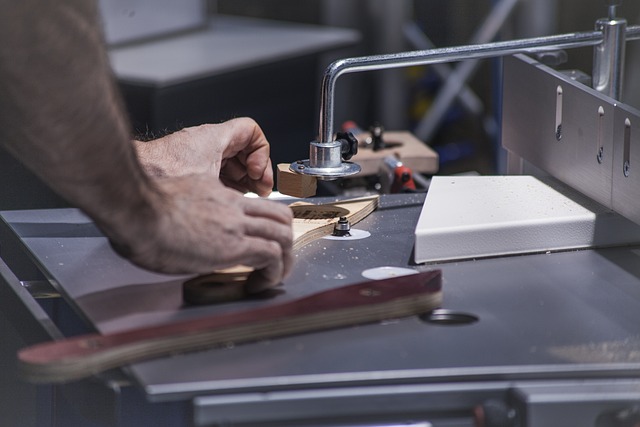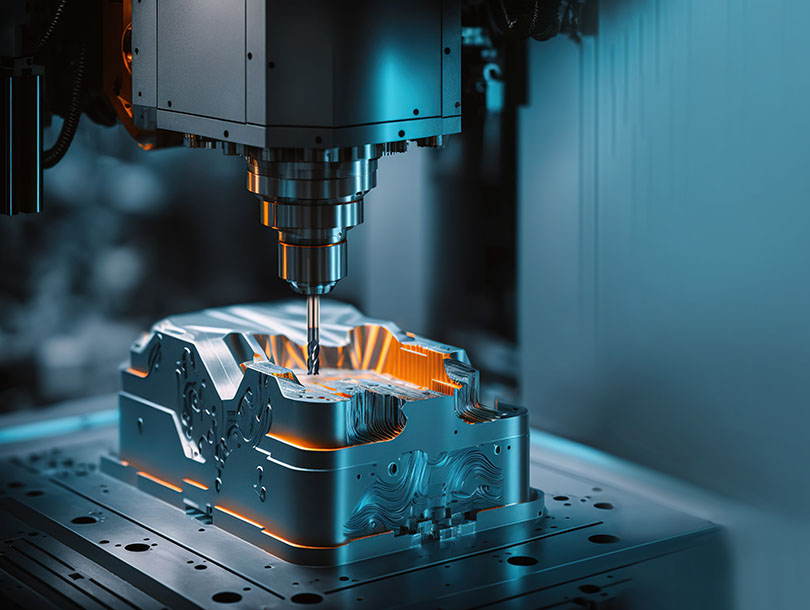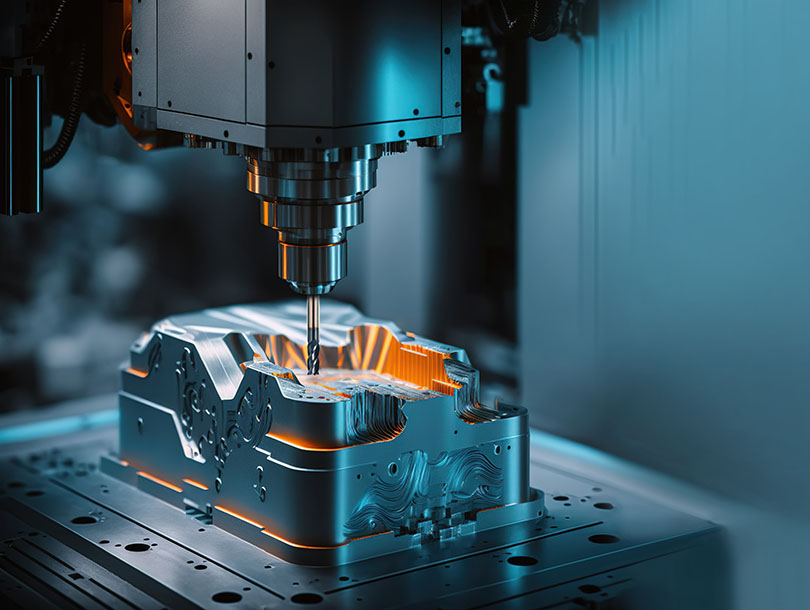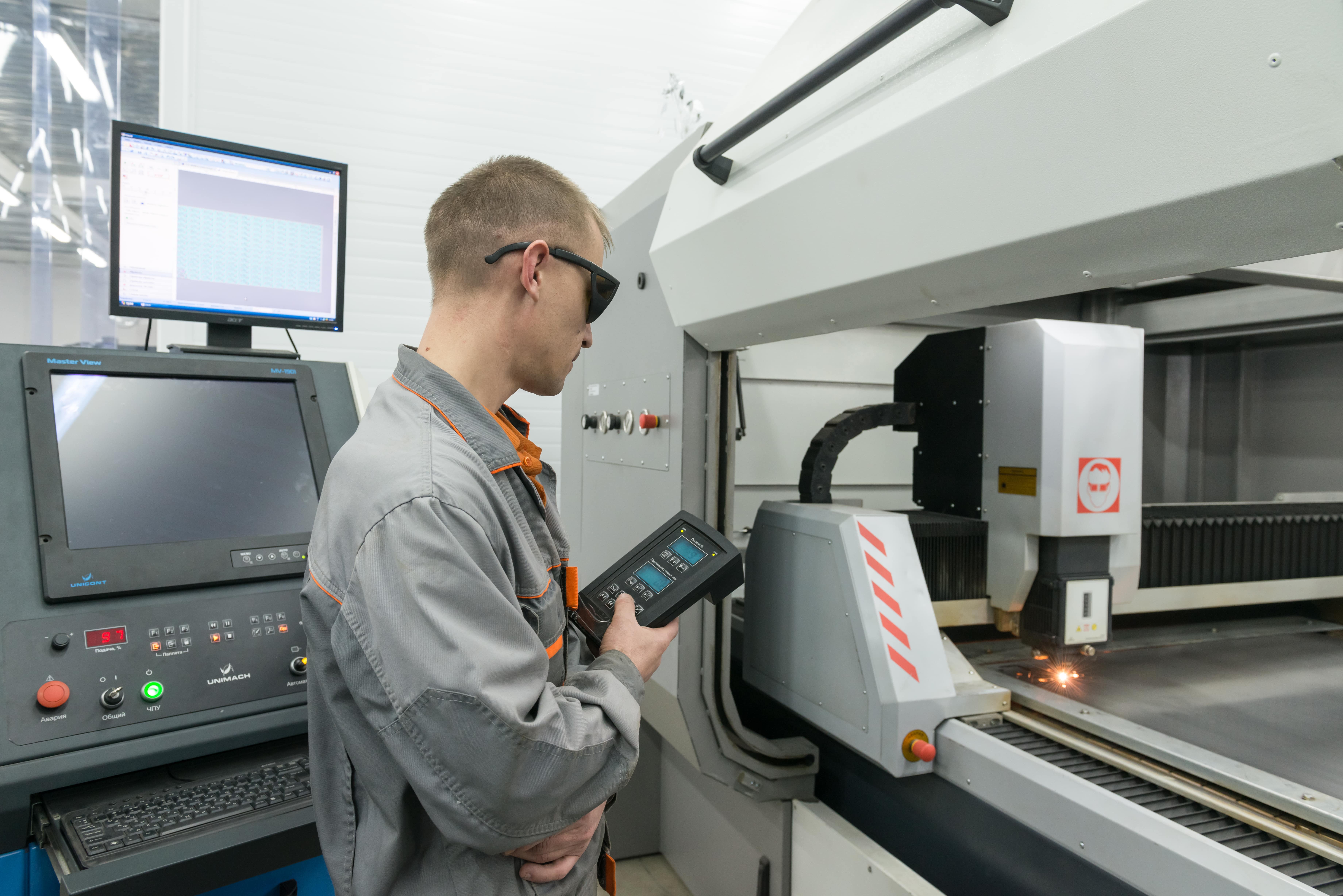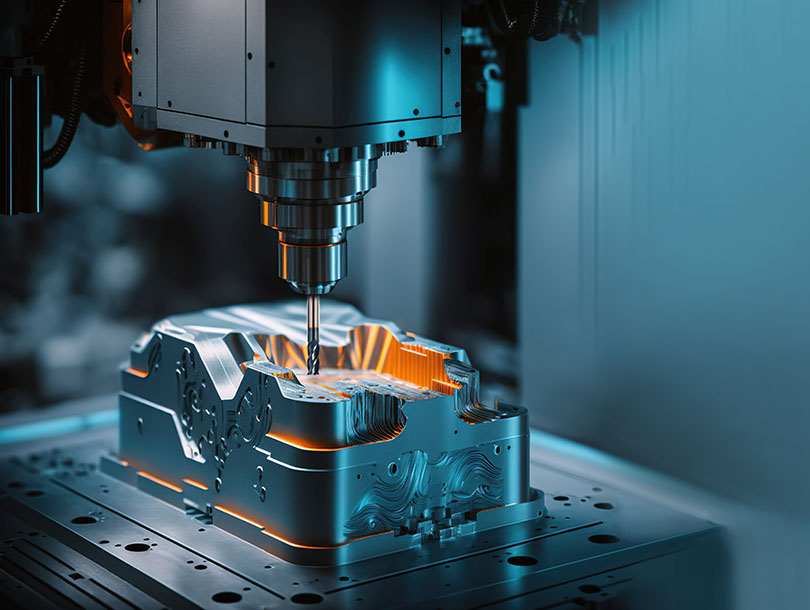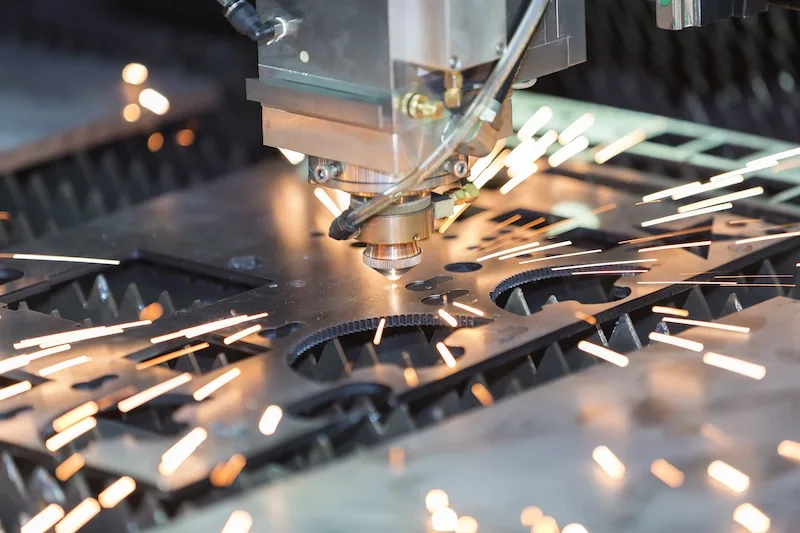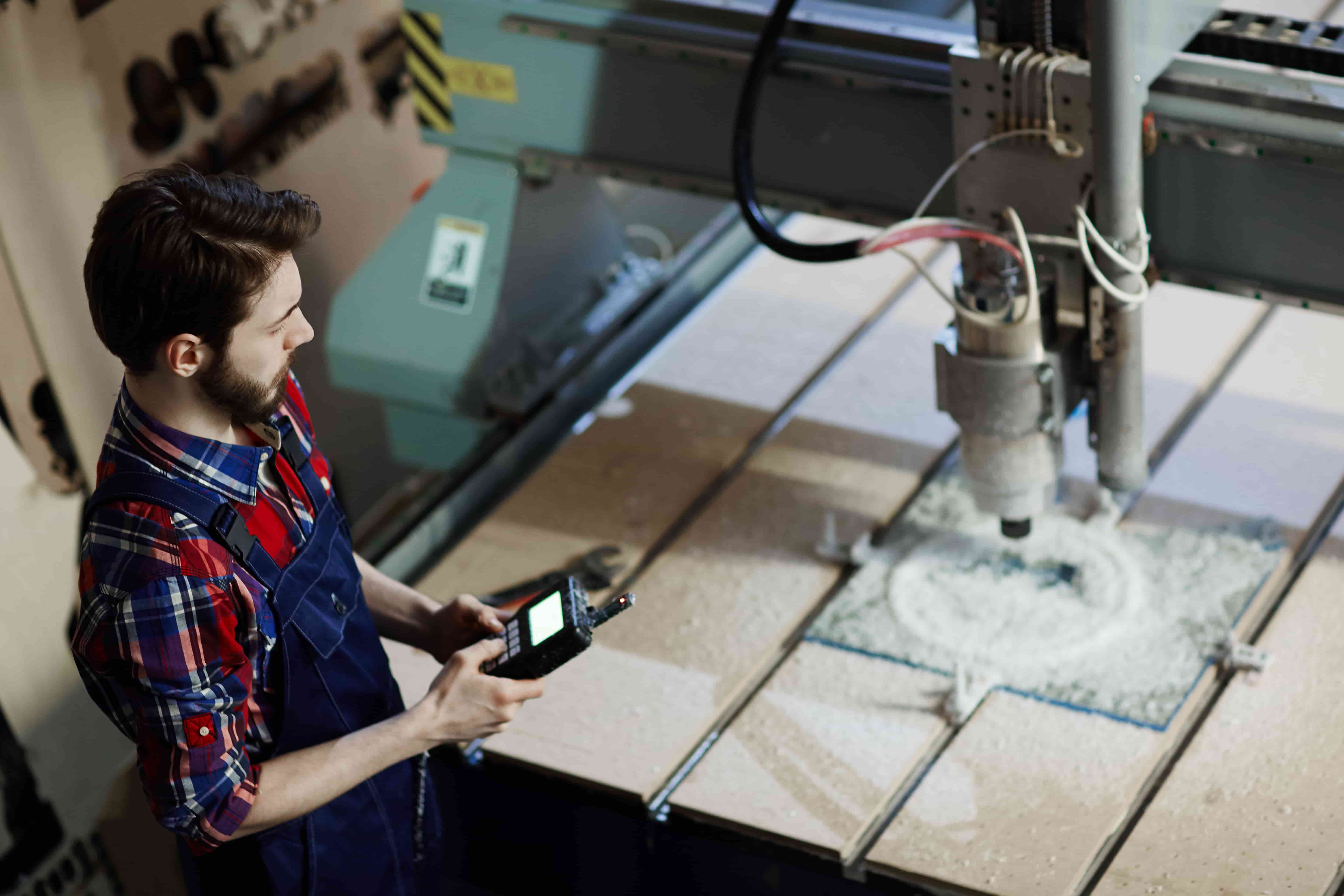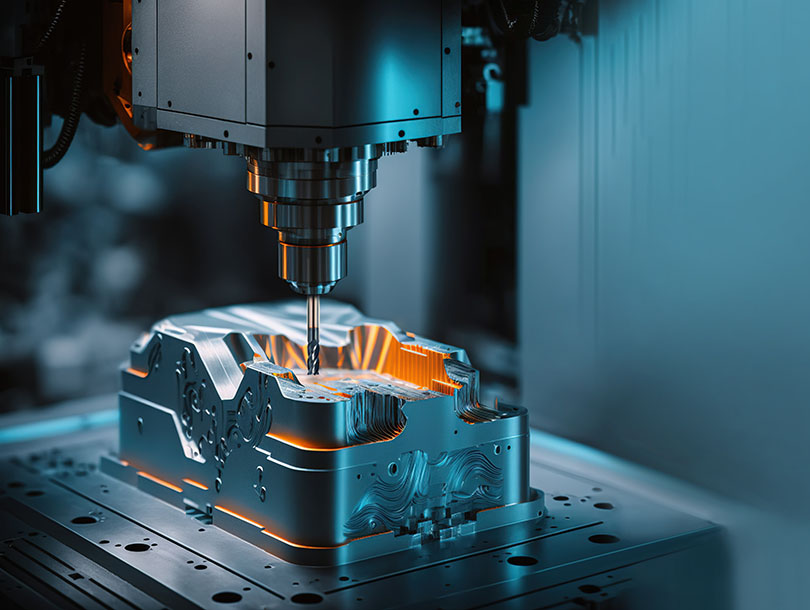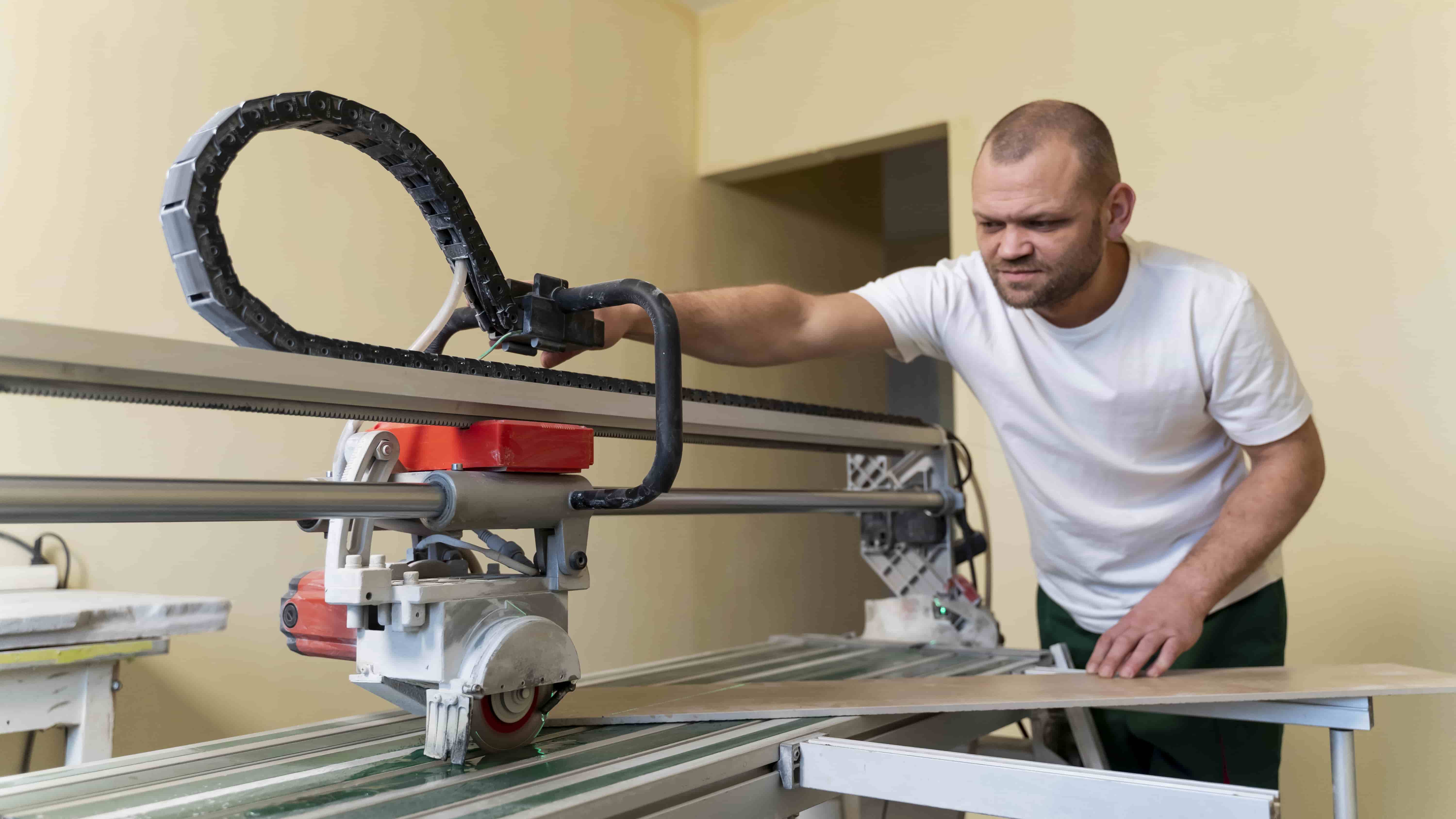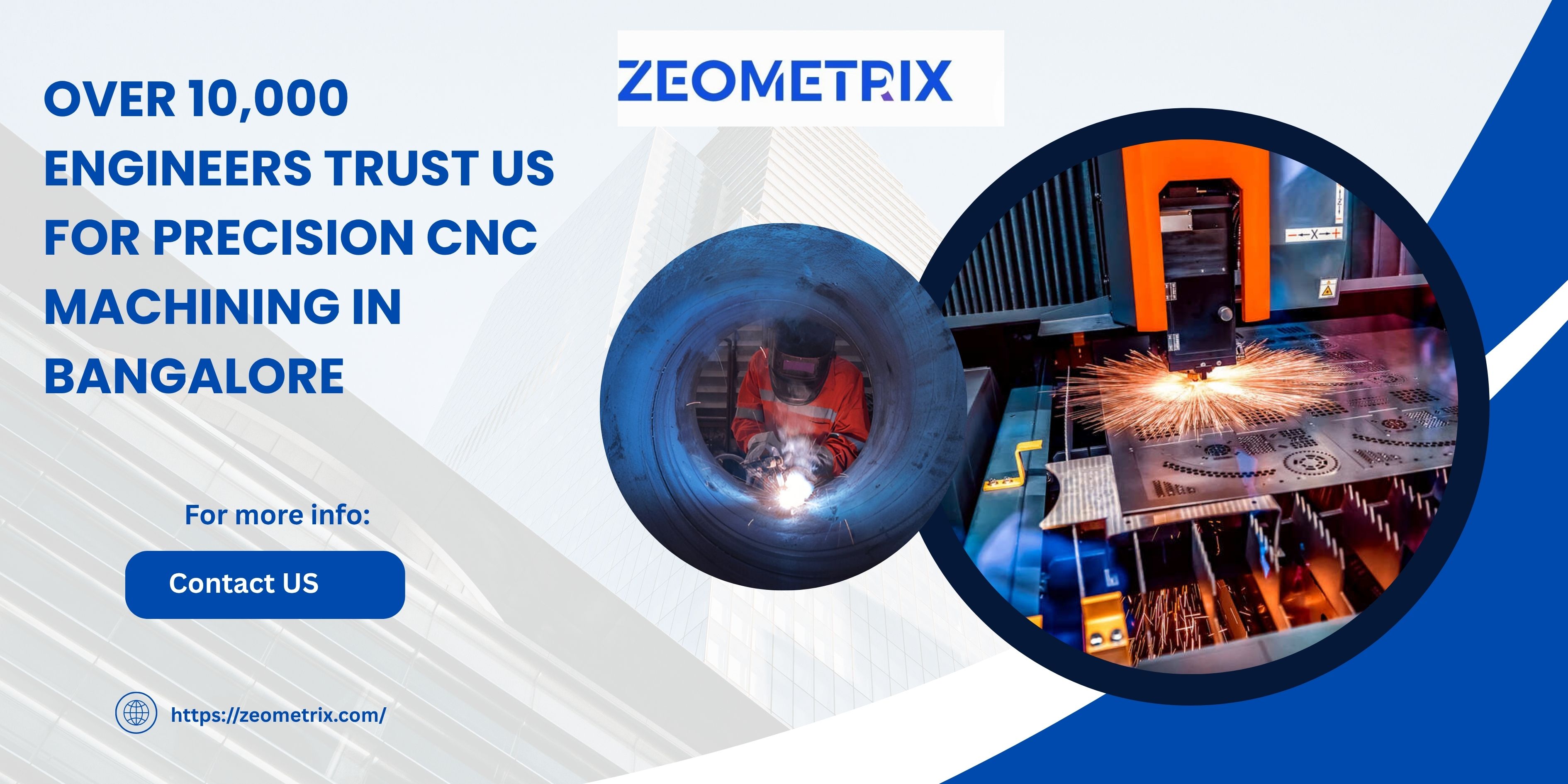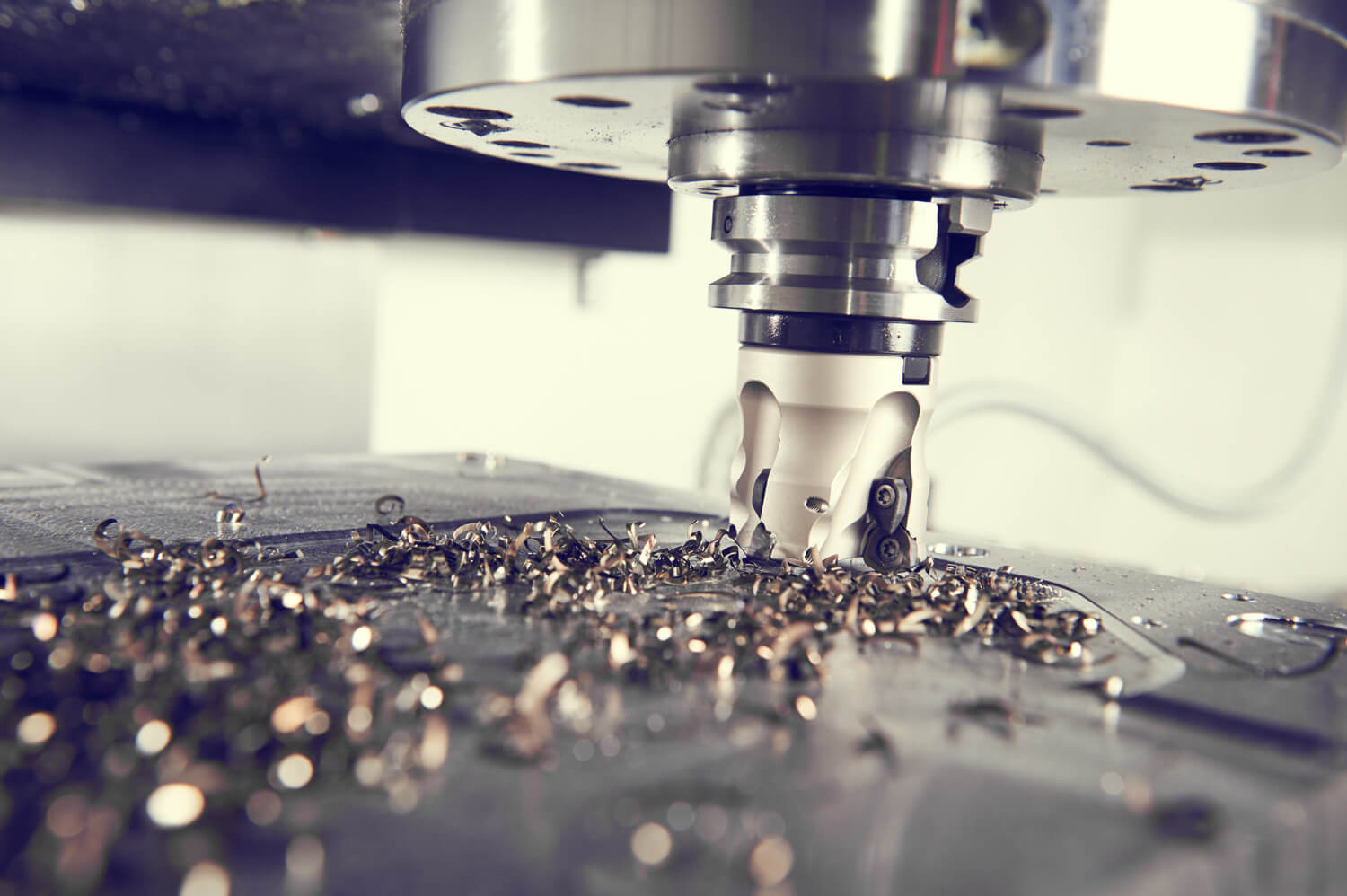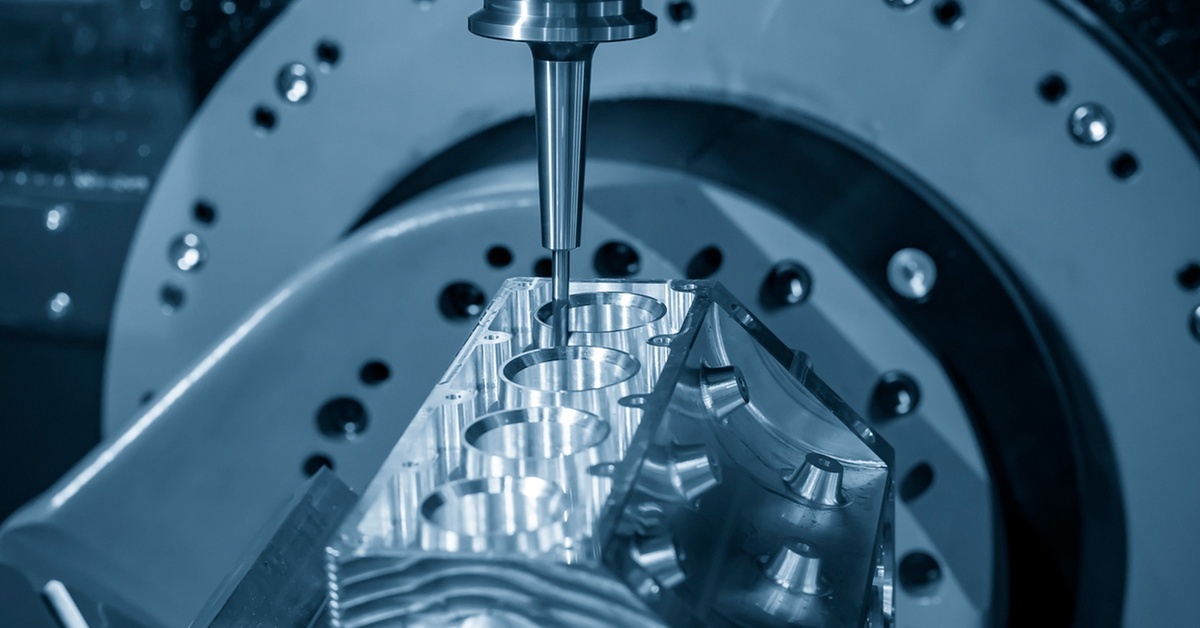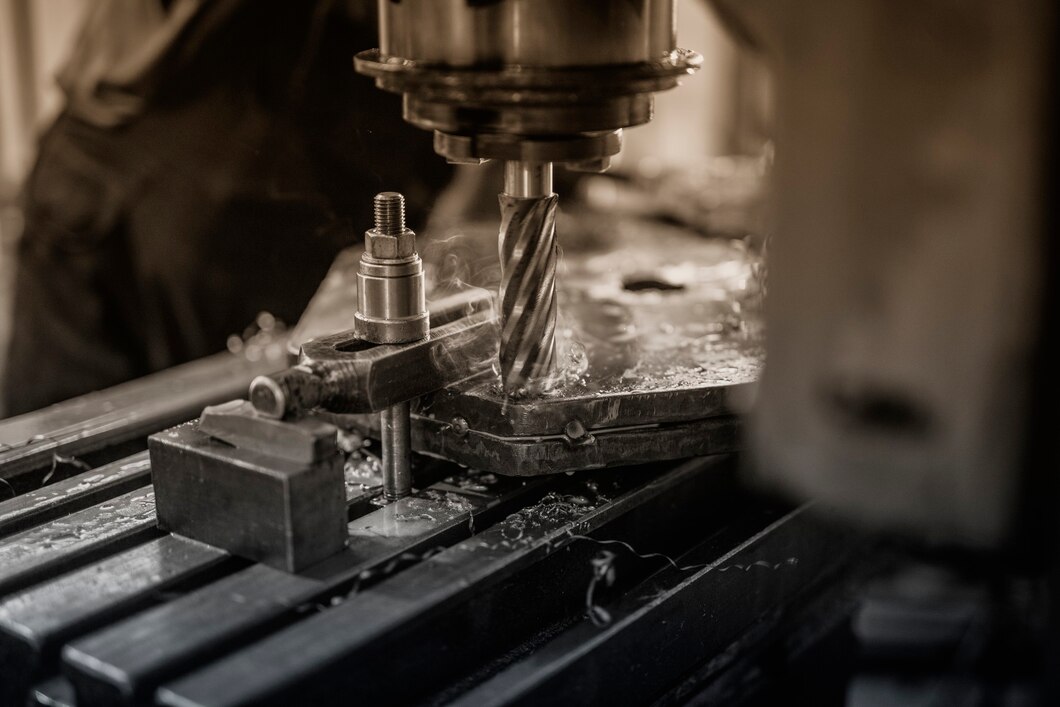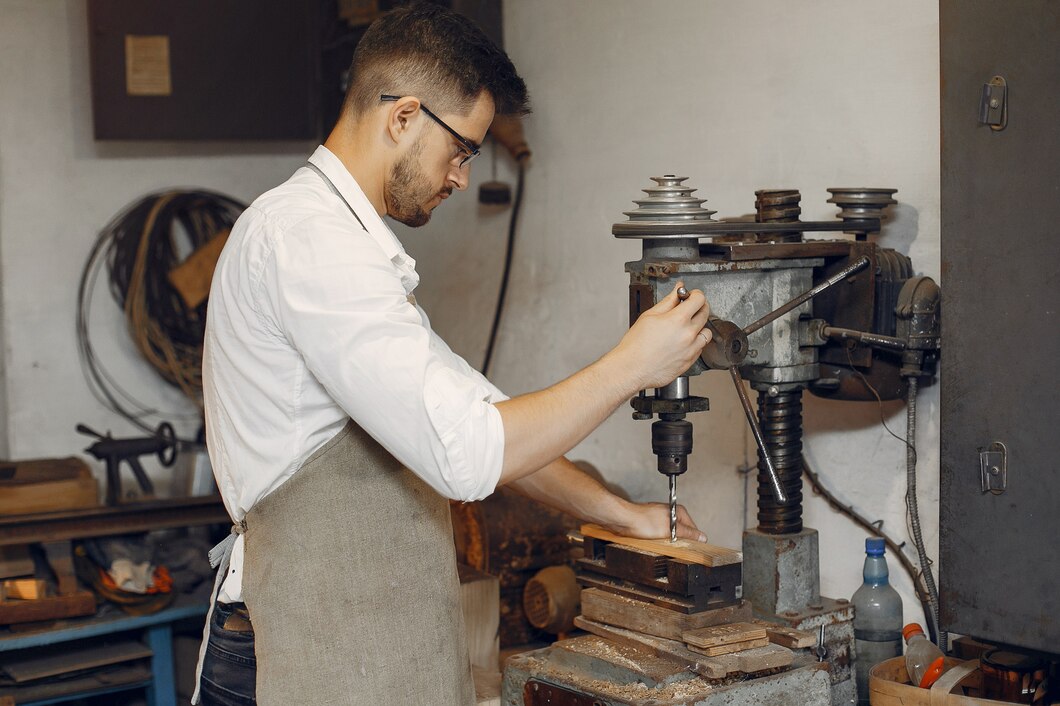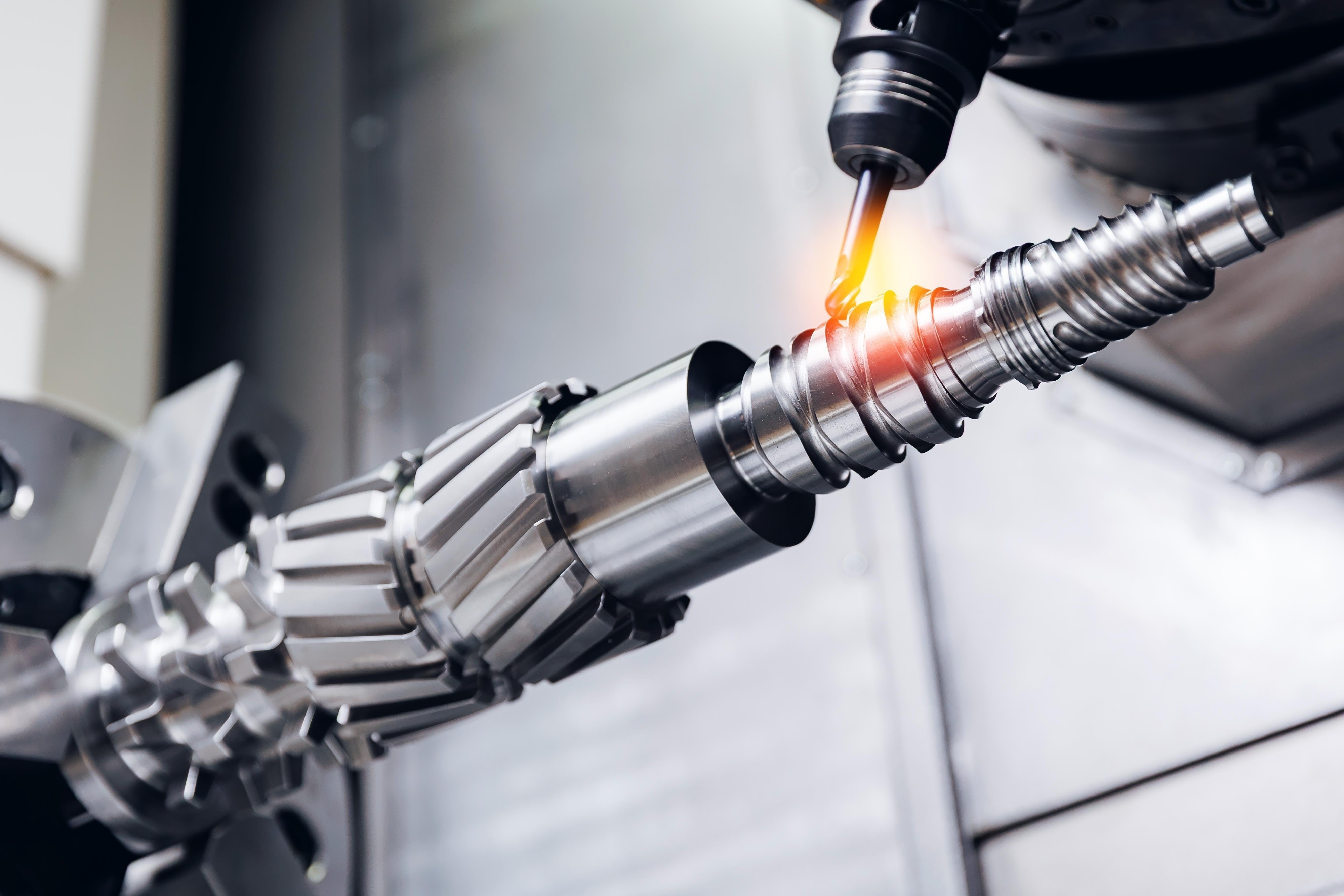How CNC Machining is Revolutionizing Production in Bangalore
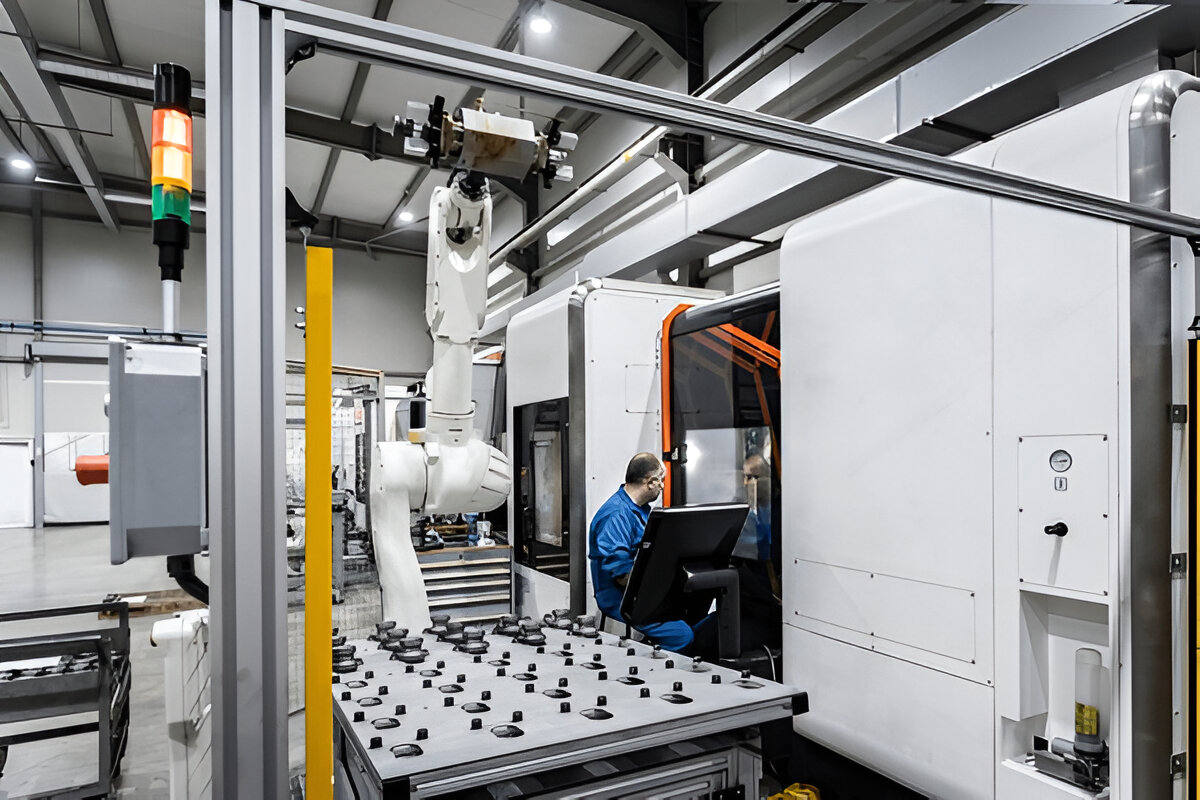
In the center of India’s technology operations and headquarters, Bangalore, a revolution driven by hardware is taking place. It is CNC machining, which decodes and streamlines production processes. The CNC (Computer Numerical Control) machining transforms design, prototyping, and production processes, as advanced CNC machines and CNC routers are revolutionizing Bangalore’s industrial sector.
As the city evolves into a significant industrial center for manufacturing and technology, CNC machining Bangalore is at the forefront of advancing production capacities. The city’s industrial CNC machine centers can cater to fast prototyping of complex parts, from aerospace components to consumer electronics. These sectors rely heavily on the precision, dependable speed, and scalability offered by CNC technology.
What is CNC Machining?
CNC machining is the growing trend in today's industry. As the name itself suggests, it is an aided manufacturing process done with the help of a computer. CNC or Computer Numerical Control uses modern technology to perform older methods of machining on a lathe mill, combination router, or grinder.
Instead of measuring actions through manual labor and with the help of personnel, CNC machining is programmed to do everything automatically. The process begins with a digital sketch which is done through CAD software. This design is made into a CNC program using CAM tools. The program gives instructions about the movement, speed, cutting depth and path the machine should follow.
Along with ease of operation, CNC industries offer great value due to the extreme precision CNC machining provides. This advanced automation of manufacturing facilitates the production of a broad array of components such as custom gears, aerospace brackets, or smartphone housings all within tight tolerances of microns. These machines replicate parts with remarkable precision and uniformity, which is crucial in mass production, achieving a level of repeatability that is simply unattainable through manual machining techniques.
To meet this growing demand, CNC machine manufacturers in Bangalore are continuously innovating, providing high-performance machines tailored to meet the diverse needs of industries ranging from aerospace to electronics.
Automation, on the other hand, is another important factor assisting towards high productivity in CNC which eliminates the probability of human error. Programming CNC machines requires initial set up, but after that, the machine can operate continuously while maintaining consistent output which improves production efficiency. This assists heavily on the reduction of labor costs and aids in smooth scaling of operations.
CNC machining integrates several types of metals such as aluminum, stainless steel, and titanium along with polymers like ABS and polycarbonate, composites, and even wood. The broad application of this technology aligns with numerous industries such as automotive, aerospace, electronics, medical devices, and defense.
Why CNC Machining is Gaining Ground in Bangalore
Bangalore, once known only for its software and IT services, is now transforming into a center for advanced manufacturing because of high-precision CNC (Computer Numerical Control) machining. The city is already home to several software companies, but with these changes to its industrial landscape, Bangalore will soon become a hub for advanced manufacturing. A few factors are driving this growth including CNC machining becoming a cornerstone to the city’s evolving industrial ecosystem.
1. Growing Demand for Precision Engineering
As one of the many IT hubs in Bangalore, the aerospace, automotive, defense, electronics, and medical sectors create industries that demand high-precision components. These sectors require parts that are very durable, high quality, and need CNC machining to meet the rigorous standards of micron-level precision.
For instance, the aerospace industry has a stringent safety and performance criteria for parts such as the engine components, landing gear elements, and structural panels. The electronics industry also needs those compact devices to have small, intricate parts made from different materials. CNC machines are capable of cutting and shaping these components to exact specifications repeatedly with minimal deviation.
This is extremely important for mass production and cannot be compromised on for exports. CNC machining is the better option since it can meet international standards, making it best suited for domestic manufacturers and multinational corporations.
2. Move to Industry 4.0
The idea of Industry 4.0, or the fourth industrial revolution, is accelerating digital changes within the manufacturing sector. It includes the implementation of IoT (Internet of Things), AI, big data, and cloud computing technologies that enable smart and automated production systems to create intelligent environments driven by data.
The modern CNC machines fit well with these guidelines. Today's CNC equipment is often connected to the internet, allowing for real-time monitoring, predictive maintenance, remote diagnostics, and data logging. A CNC systems operator in a Bangalore factory can now monitor the CNC equipment using control rooms or mobile applications, which increases efficiency and reduces downtime.
Moreover, AI-based systems are increasingly used for automated CNC machines for toolpath optimization, error detection, and process simulation. It enhances productivity while cutting down on waste materials and production costs. For CNC manufacturers in Bangalore who are trying to establish global competitiveness, being equipped with these technologies is crucial rather than optional.
3. Educational Institutions and Skilled Workforce
Bangalore’s educated and skilled workforce is one of the city’s best resources, and its expansive network of engineering colleges, polytechnic institutes, and IT training centers add to the value. Specialized programs in mechanical engineering, robotics, mechatronics, and CNC programming are also offered.
This ecosystem has established a steady pipeline for CNC machinists, CAM programmers, design engineers, and quality inspectors who are trained in modern manufacturing technologies. Companies in Bangalore now have access to a local skilled workforce who are capable of sophisticated production and process improvement workstreams.
Moreover, a number of sector-specific institutions incorporate industry partnerships into their curricula through internships, apprenticeships, and collaborative research projects, which equips students with the newest CNC software, machines, and industry standards.
4. Thriving Start-Up and Innovation Culture
Business-focused education and training institutions extends well beyond IT into manufacturing technology (manu-tech), further solidifying Bangalore’s reputation as a startup capital. The city is witnessing a rise in hardware and deep-tech startups focused on product development, prototype creation, and custom manufacturing.
CNC machining is necessary for this innovation ecosystem. Companies in robotics, electric vehicles, drones, and IoT devices require rapid design iteration and thorough testing, which demand fast, precise, and flexible production; all of which CNC machining provides through its capability for functional prototype production, and short-run testing and production.
In addition, the co-working spaces and startup accelerators in Bangalore are offering access to fab labs and makerspaces that have CNC machines, laser cutters, and 3D printers. These tools are available for young companies to use at a lower cost than purchasing them.
5. Close to Industrial Corridors and Supply Chains
Bangalore is close to many industrial clusters and manufacturing corridors like Peenya Industrial Area, Bommasandra, Hosur, and Electronic City. These regions have hundreds of CNC job shops and component manufacturers as well as assembly units.
Having such a varied supplier network greatly increases the efficiency and speed for doing manufacturing projects. With sourcing raw materials, outsourcing secondary operations such as anodizing or heat treatment, and logistics all streamlined, Bangalore’s supply chain infrastructure makes just-in-time manufacturing easy to do.
In addition, the well-connected roadways of the city along with air cargo terminals, and ports in Chennai and Mangalore make domestic and international shipments easy for units focused on exports.
6. Support from Government And Infrastructure Advancement
Both the state government of Karnataka and the central government are supporting advanced manufacturing initiatives through policies, subsidies, and infrastructure development. The Production Linked Incentive (PLI) schemes, Make in India, and even Skill India are all serving to aid businesses to invest in new equipment, including CNC machines.
The Special Economic Zones (SEZs), industrial parks, and technology parks located in and near Bangalore provide amazing infrastructure alongside tax incentives for global and local investment into precision manufacturing. These steps are persuading businesses to establish CNC machining units and other services in the area.
Key Industries Benefiting from CNC Machining in Bangalore
1. Aerospace and Defense
Bangalore is home to major players in aerospace such as HAL (Hindustan Aeronautics Limited), ISRO, and various private aerospace companies. These companies require CNC machining for turbine blades, engine parts, and structural components due to the precision and strict tolerances required.
2. Automotive and Electric Vehicles (EVs)
Startups and established companies in Bangalore’s automotive sector are using CNC machining to manufacture lightweight motor housings, gear systems, and transmission parts. Moreover, the ability of CNC machines to quickly prototype and produce in small quantities greatly aids research and development.
3. Medical Devices and Healthcare Equipment
Many medical equipment companies in Bangalore have adopted CNC machining due to the need for high-precision and biocompatible parts. By employing CNC for surgical instruments, bone implants, and other diagnostic devices, manufacturers are able to achieve stringent hygiene and precision standards.
4. Electronics and Semiconductor Manufacturing
The use of CNC machining in Bangalore's electronics sector to manufacture metal enclosures, heat sinks, and component housings for sensitive electronic devices also parts is advantageous
The Impact of Technology on the Growth of CNC
1. Multi-Axis CNC Machines
With the new 5 and 7 axis CNC machines, more sophisticated geometries of parts can be manufactured in a single setup, which saves time. This is particularly beneficial for the aerospace and robotics industries based in Bangalore. .
2. Hybrid Manufacturing
The adoption of CNC machining alongside additive manufacturing processes such as 3D printing enables greater efficiency to be attained in both processes. 3D printing expedites early-stage prototyping, whilst CNC machining adds precision by refining 3D printed components. Many companies now turn to custom CNC services to fine-tune intricate parts, ensuring optimal fit, finish, and functionality in the final product.
3. Automation and Robotics
The integration of robotic arms and conveyor systems with CNC machines is becoming commonplace in Bangalore. This is leading to greater uptime, reduced need for manual labor, and improved productivity on the shop floor.
4. CAM Software Integration
The application of CAM (Computer-Aided Manufacturing) software improves simulation, planning, and optimization of CNC operations. This is drawing the attention of many startups and SMEs based in Bangalore looking to enhance their production yield.
Economic and Environmental Impact
1. Boost to Local Manufacturing Ecosystem
The CNC machining services have allowed small and medium enterprises in Bangalore to globally client's high-quality parts. Job shops and precision machining firms are booming due to both domestic and international opportunities. .
2. Reduction in Wastage
Mistakes in planning or executing traditional machining methods often lead to excess material cut, resulting in wastage. Thanks to accuracy, simulation, and other advanced features, CNC machining improves material utilization and greatly enhances the precision of the machining process, greatly reducing scrap rates.
3. Faster Time-to-Market
With CNC’s ability to quickly go from CAD file to physical part, companies in Bangalore can iterate and launch products faster. This agility is vital in competitive sectors like consumer electronics and electric vehicles.
Challenges in CNC Machining in Bangalore
1. Initial Investment
The cost of acquiring a CNC Machine is a challenge to most small scale manufacturers. There is, however, some relief in the form of government grants and PPPs.
2. Maintenance and Skilled Labor
A qualified expert is required to keep CNC Machines in good working order. For Bangalore, there is an abundance of skilled workers, but they are almost always forced to keep learning due to the rapid rate of advancement in many areas.
3. Power Supply Issues
Some industrial areas experience consistent outages and voltage spikes, which can affect the productivity of machines. Many factories now invest in uninterruptible power supply, or backup generators to spend less time shutting down and more time working.
The Government and Corporate Sector
1. Provision of Policies
The government is offering assistance via policies such as Make in India and Startup India, which include incentives for CNC machinery adoption to aid in tax innovation.
2. Industrial Clusters and Parks
Many CNC machining companies are located in the Peenya Industrial Area, Bommasandra, and Electronic City of Bangalore. The growth of these clusters has facilitated substantial collaboration in terms of infrastructure development and the provision of raw materials.
3. Skill Development Programs
Specialized courses in CNC Programming, Operations, and Maintenance are offered by institutions like NTTF and GTTC.
Zeometrix: A Local CNC Machining Leader
As one of the top providers of CNC machining services in Bangalore, Zeometrix demonstrates the potential local businesses have in utilizing CNC technology to serve global markets. With regards to precision-engineered components, Zeometrix's solutions span from automotive industry parts to medical devices. Their services are cost-effective while ensuring that clients are able to maintain industry standards.
Zeometrix features advanced multi-axis machines and skilled engineers, with well-defined quality control procedures. This transforms their facility into a one-stop shop for prototyping and mass production.
The Future of CNC Machining in Bangalore
The CNC machining industry in Bangalore is anticipated to grow substantially in the near future. Development in AI-based predictive maintenance, digital twin technology, and nanomachining are some of the newer innovations that will reshape the industry. The anticipated growth of CNC capabilities in response to exotic alloys and composites is likely to be parallel with the evolution of these materials.
Along with the rest of the industries from Bangalore, the focus on smart manufacturing will further cement CNC machining as one of the foundational elements of the region’s industrial transformation. A great opportunity lies in meeting the demand for supply chains that are localized, but globally capable due to the presence of CNC shops in the city which offer high-quality products and scalability.
Final Thoughts
CNC machining is more than merely a tool; it is a powerful force leading transformation in the manufacturing landscape of Bangalore. The merging of digital technologies with automation enhances productivity, quality, and innovation in business. As the city advances as a manufacturing and technological hub, it is clear that CNC machining will continue to facilitate industrial success.
Zeometrix, a key player in this evolving ecosystem, leverages CNC machining to deliver high-precision solutions tailored to modern industry needs. CNC offers unmatched opportunities in Bangalore that you can’t afford to miss. A breakthrough maker startup can now prototype, and expansion-ready large-scale manufacturers can easily scale up production.
